Arts & Entertainment
PBS documentary spotlights trans political candidate in Texas
‘A Run for More’ screened at more than 30 film festivals

Fifteen minutes into “A Run for More,” a clip shows the plunging back of Frankie Gonzales-Wolfe’s cream wedding dress embroidered with pearly white appliqués. Her smooth hands are gently clasped by her husband’s. He, Jeff Wolfe, is poised opposite her in a deep navy United States Air Force uniform.
“Jeff, I place this ring on your finger, with my everlasting love for you, as my best friend, and as my husband,” Gonzales-Wolfe breathily repeated after the wedding officiant while holding back gleeful tears.
“A Run for More,” which has partnered with multiple organizations including the Human Rights Campaign, concluded on Monday, May 15 the 11-episode eighth season of “Reel South,” a Public Broadcasting Service documentary series. “Reel South” presented feature-length and short documentaries and used diverse voices to tell stories about the complicated heritage of those who live in the South. It was produced in conjunction with a variety of Southern PBS affiliates.
“A Run for More” was filmed across three years; however, its storyline began in 2016 when Washington, D.C.-based filmmaker Ray Whitehouse met Gonzales-Wolfe in San Antonio, Texas, her hometown. There, Gonzales-Wolfe commanded a legion of local volunteers for former presidential candidate Hillary Clinton’s 2016 campaign for president.
Whitehouse — who was a part of the Washington Post’s Pulitzer-prize winning team for the paper’s coverage of the Jan. 6, 2021 insurrection — had been living in San Antonio after he’d “moved [there] for love,” and he spent his days documenting the realities of the gritty work required to volunteer for presidential campaigns.
“I think of politics … as more about how do we organize ourselves, allocate power and move forward as a society,” he said.
Consequently, he developed a friendship with Gonzales-Wolfe that saw him document moments in her personal life, including her wedding, which took place the Saturday after Clinton’s defeat and against the backdrop of dismayed Democratic supporters.
Almost three years later, Gonzales-Wolfe became the first transgender woman to run for city council in District 8 in San Antonio. When she called Whitehouse, he was excited.
“[Frankie] is just a joy to be around and she kinda has that intangible energy, and you just want to spend time with a person like that,” said Whitehouse. “What was inspiring to me was that she was trying to do something that had never been done before. And despite the fact that there were a lot of challenges, she was willing to face those challenges head on.”
Though “A Run for More” doesn’t end with a desired political victory for Gonzales-Wolfe, it’s a foray into the complexities of local politics, especially unseating an incumbent. Gonzales-Wolfe, who has worked in political campaigns since the 1990s, said the documentary is about “the Dos and Don’ts of campaigning” for trans candidates.
“I think it’s going to allow someone the opportunity to see my truth and be like, ‘One of the major mistakes that Frankie made was she didn’t own who she is as a person. And she had to learn the hard way’,” said Gonzales-Wolfe. “It wasn’t my ideas or what I was trying to implement for the community to enhance it…It really had to do with one aspect, which was who I am.”
Fully accepting her trans identity was an uphill battle especially spotlighted during a Transgender Lobby Day in Austin. At the event, Gonzales-Wolfe met trans activists from around the state, of whom she said she felt like a guest to their “sisterhood.”
“I’m embarrassed right now,” she reflected on the day, in between tears, in the documentary. She sat barefaced opposite Wolfe, her husband, in their kitchen with only her glasses on. “I felt for me, a trans woman in a group of trans women, I was a visitor.”
“Don’t be ashamed of your story; that’s your life,” Wolfe replied. “You can’t be judged for your life.”
Lobby Day not only taught Gonzales-Wolfe about the heartbreaking reality of homelessness and neglect other trans women faced, an unfamiliar experience for her, but also about her privilege as a passing, married trans woman with a support system. It helped show her how she was running her campaign as though she were cisgender.
She recalled vehemently countering some of the activists’ points, while drawing on her knowledge and experience in politics. However, her friend and Houston activist Monica Roberts encouraged her to listen.
“I was called out at the table we were sitting at pretty roughly,” said Gonzales-Wolfe.
This and other experiences became the foundation for her self-actualization and increased her confidence in her identity. Now as chief of staff to the commissioner for Precinct 1 in San Antonio, she uses her role to advocate for issues such as helping small business and improving infrastructure, and also championing trans causes.
For Whitehouse, this is part of the point of the documentary — it contributes to the drought of representation of trans legislators in the country. Only 50 legislators in the U.S. identify as either a trans man or trans woman, according to data from Out for America – LGBTQ+ Victory Institute.
“Trans people are having laws made about them but they aren’t [a part of] the legislative process,” he said.
He added that the documentary is also about love and community.
“[It shows] what it means to try and understand who you are,” said Whitehouse.
Above all, “A Run for More” is a love story about Gonzales-Wolfe and her husband and their finding each other. Although wedding pictures could show this, the documentary provides the context lost in photos.
“I’m so grateful for everyone that fought for my right to marry the love of my life,” Wolfe, the husband, said to cheers from guests at their purple-lit wedding reception. “I promise all of you, and her, that we’re not going to stop fighting for that right.”
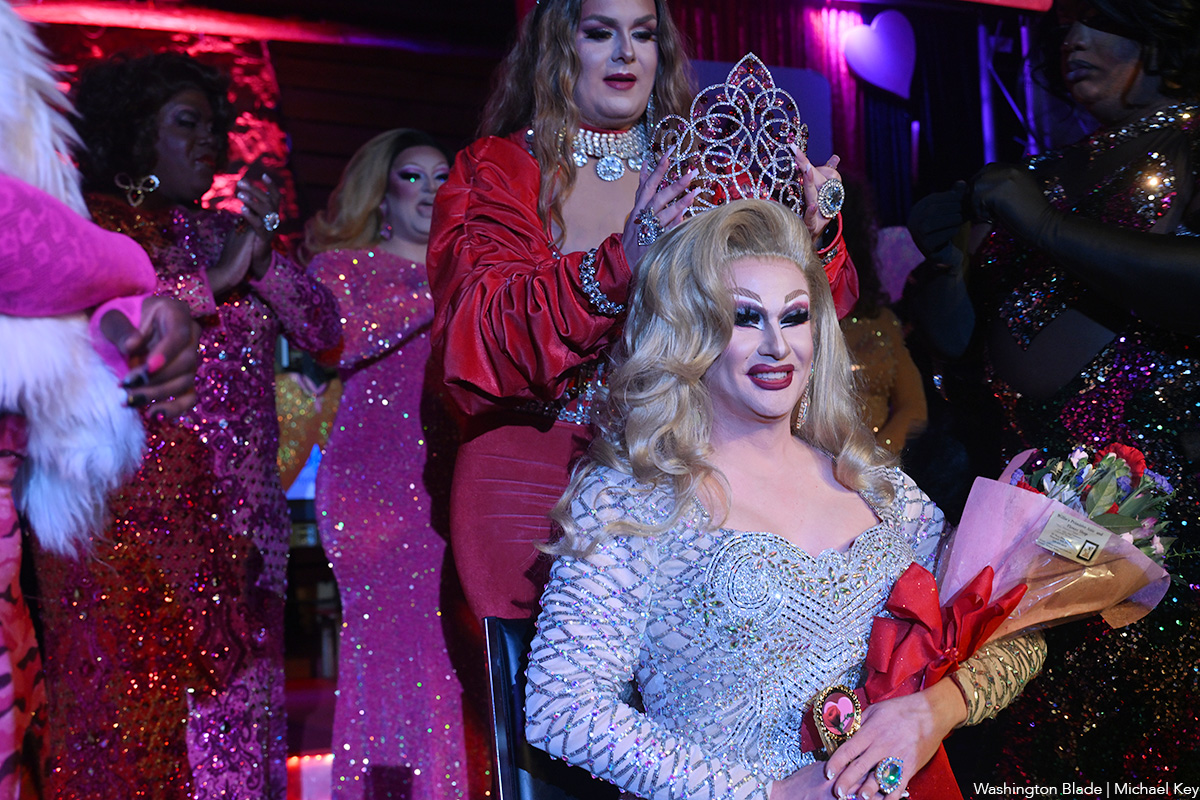
The 44th annual Queen of Hearts pageant was held at The Lodge in Boonsboro, Md. on Friday, Feb. 20. Six contestants vied for the title and Bev was crowned the winner.
(Washington Blade photos by Michael Key)
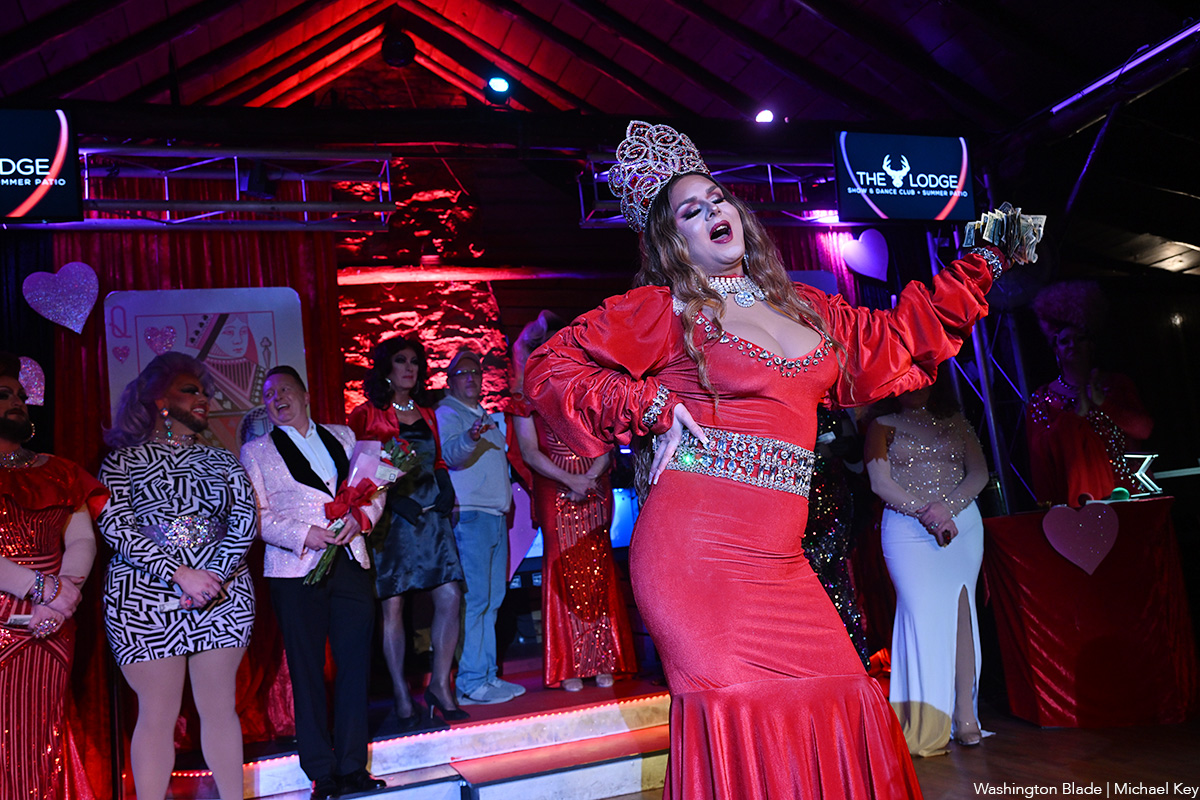
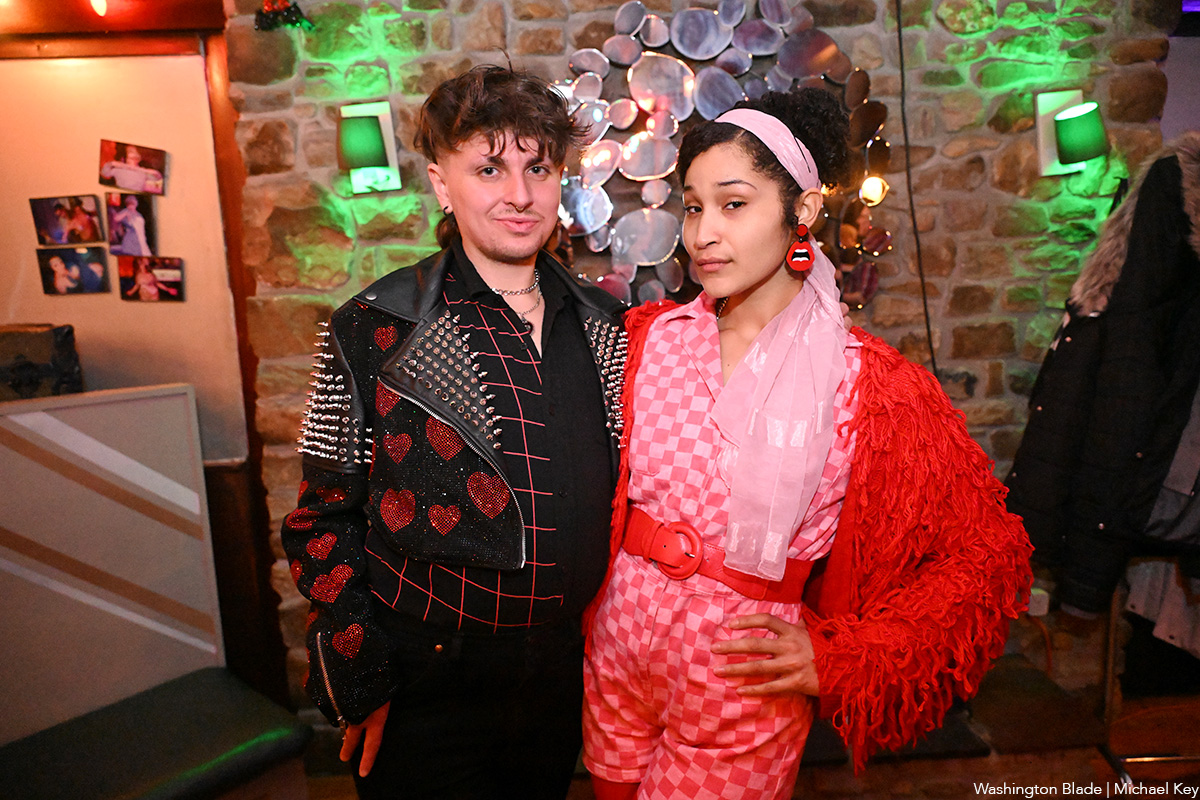
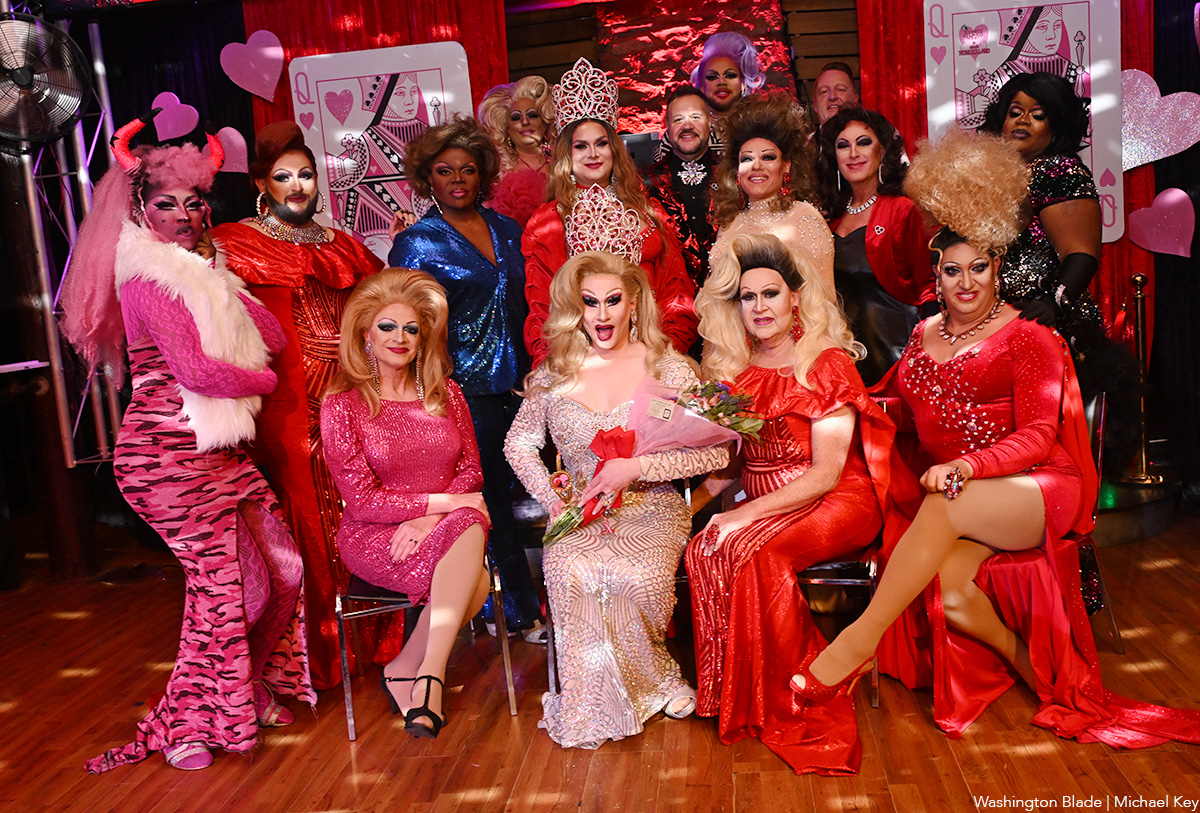
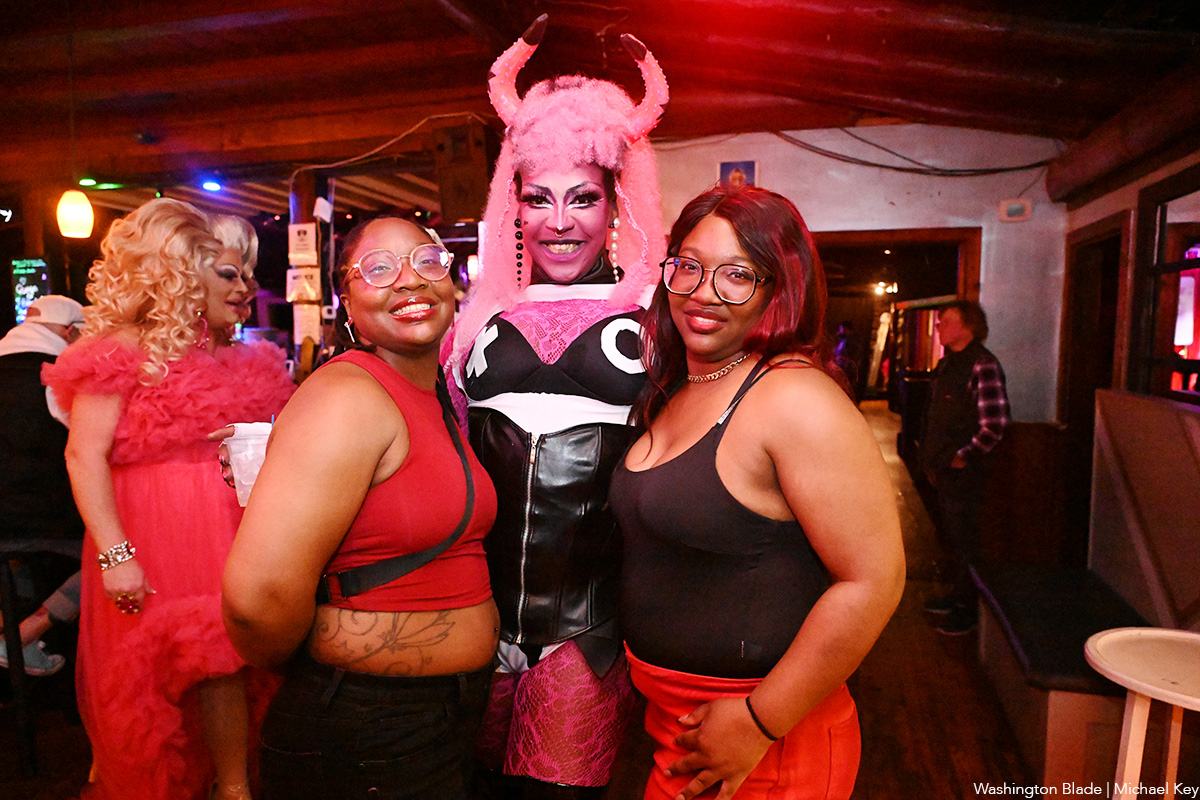
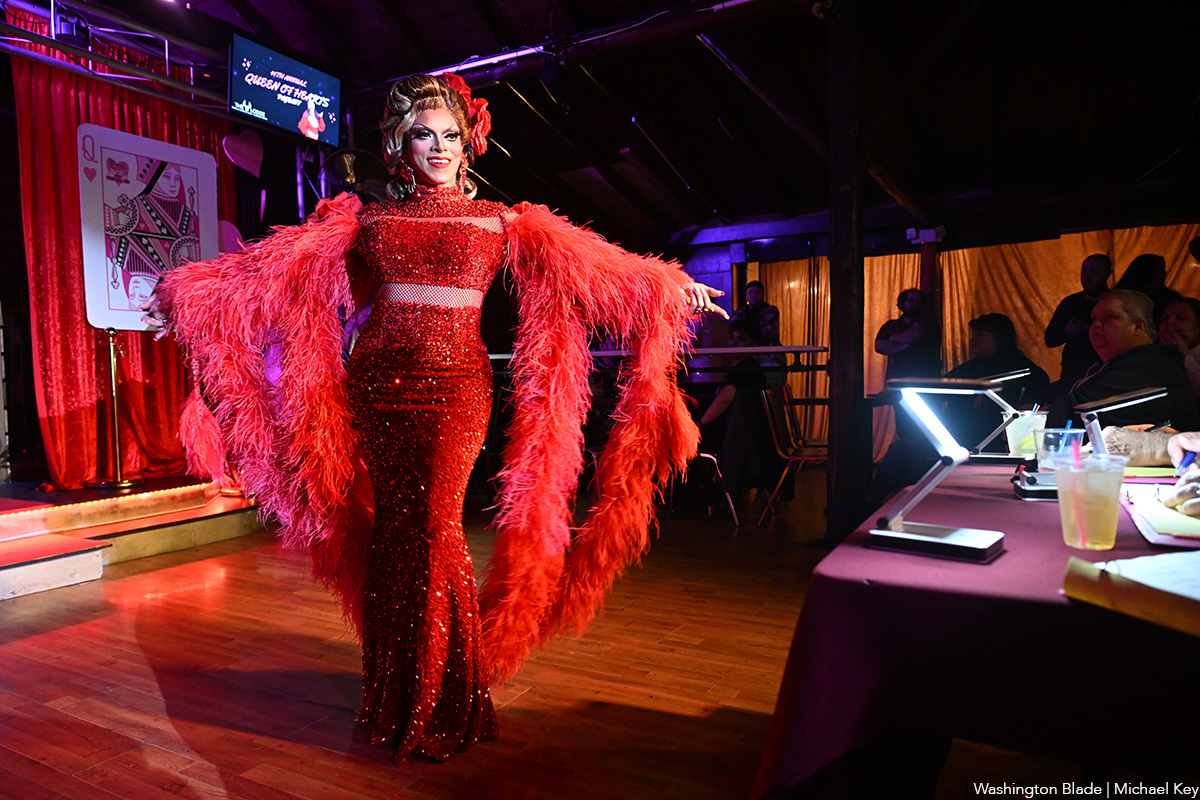
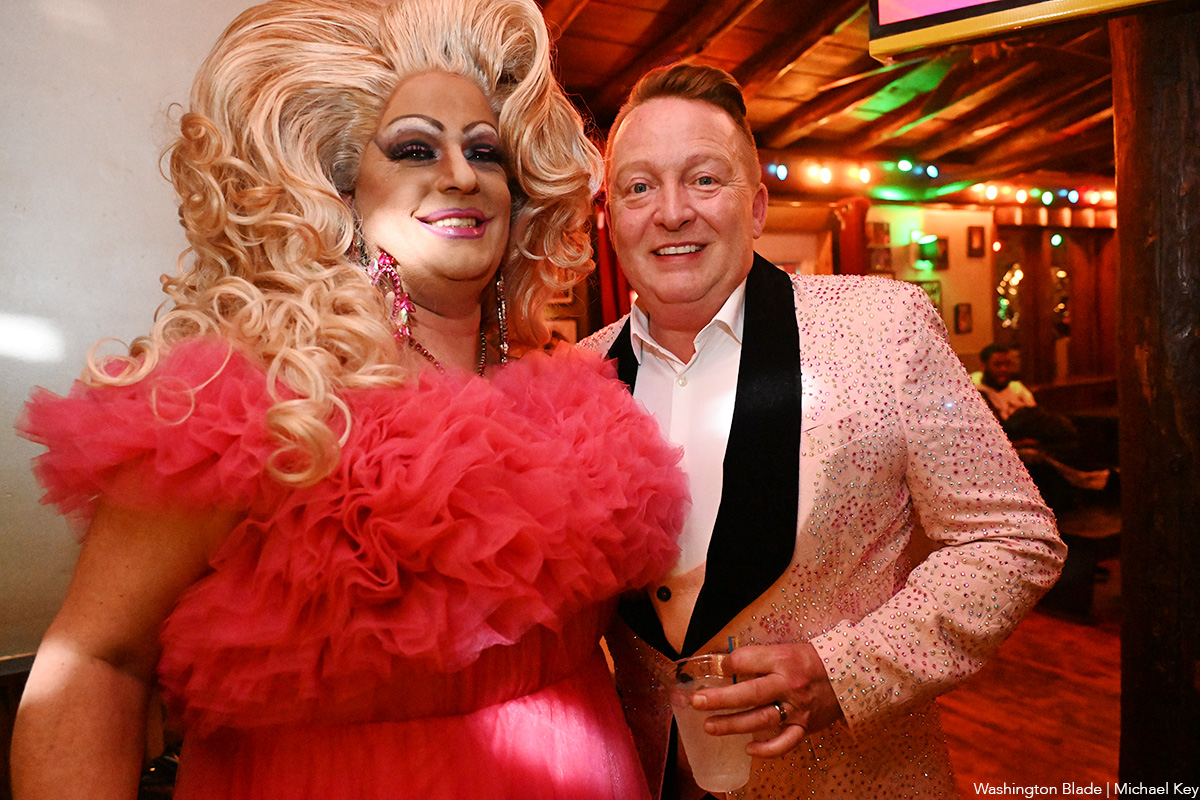
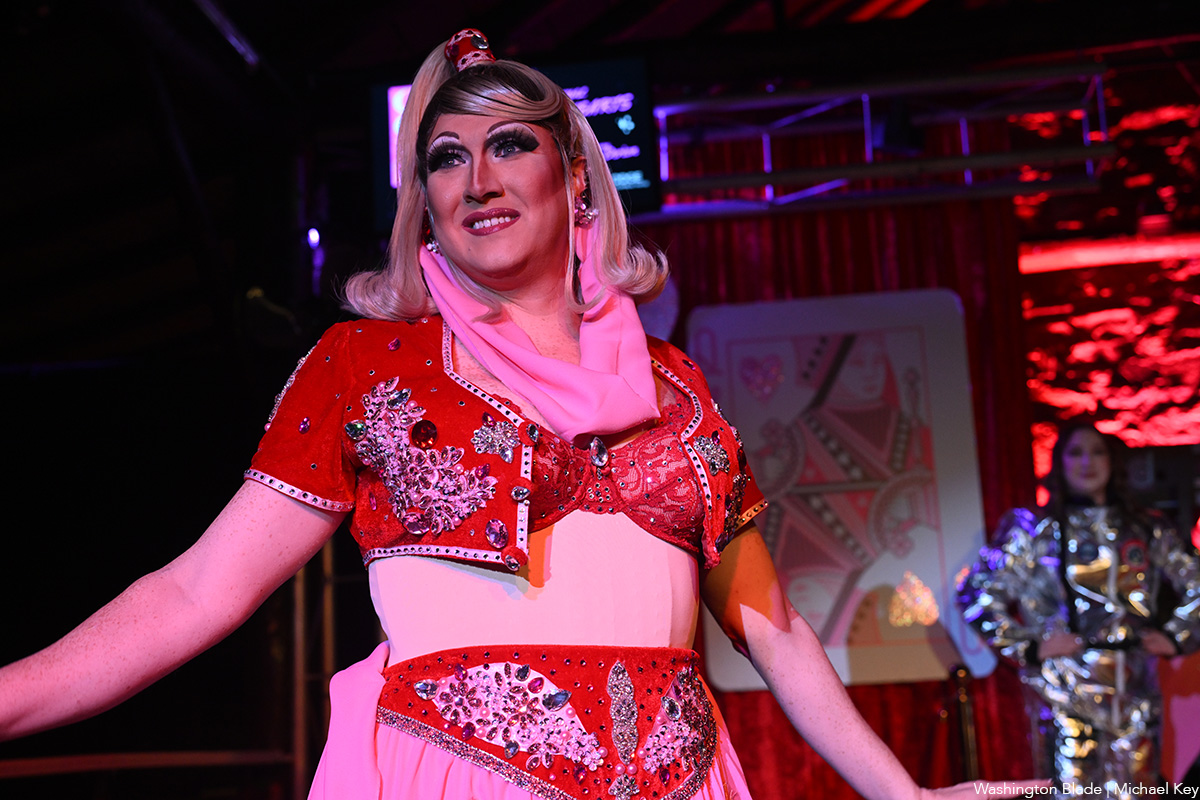
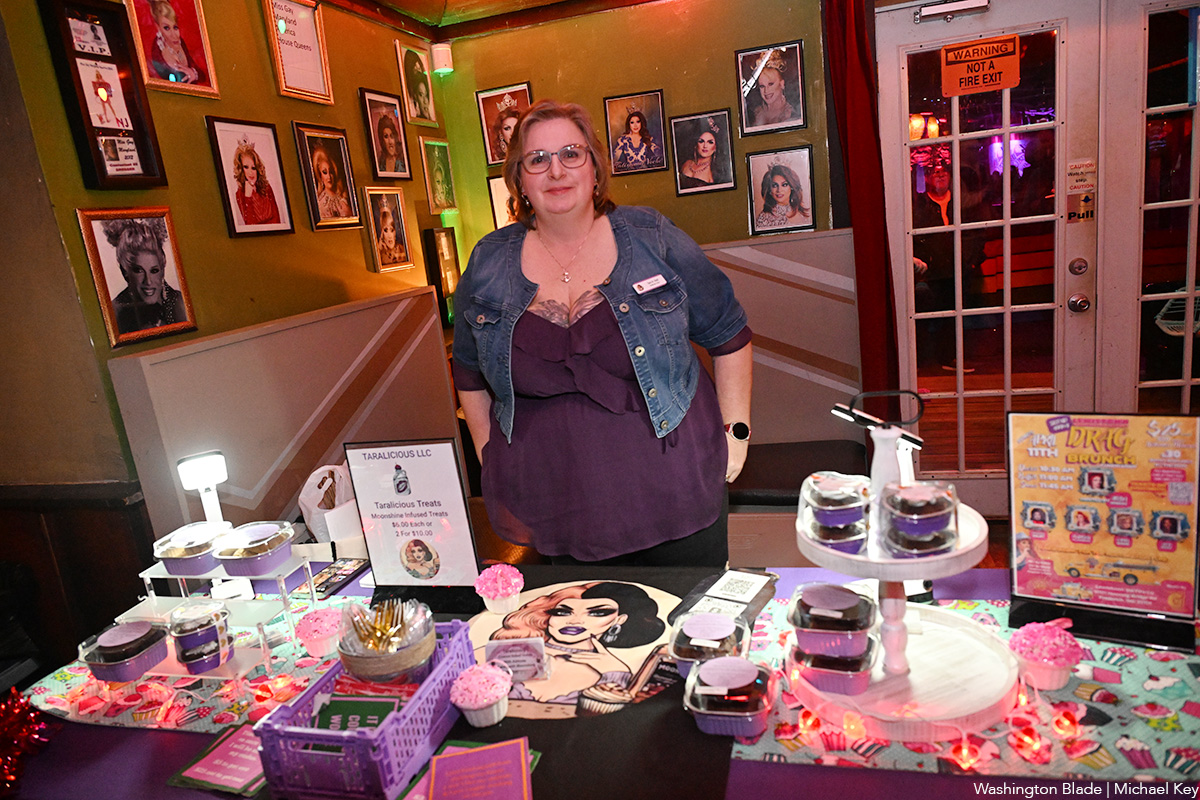
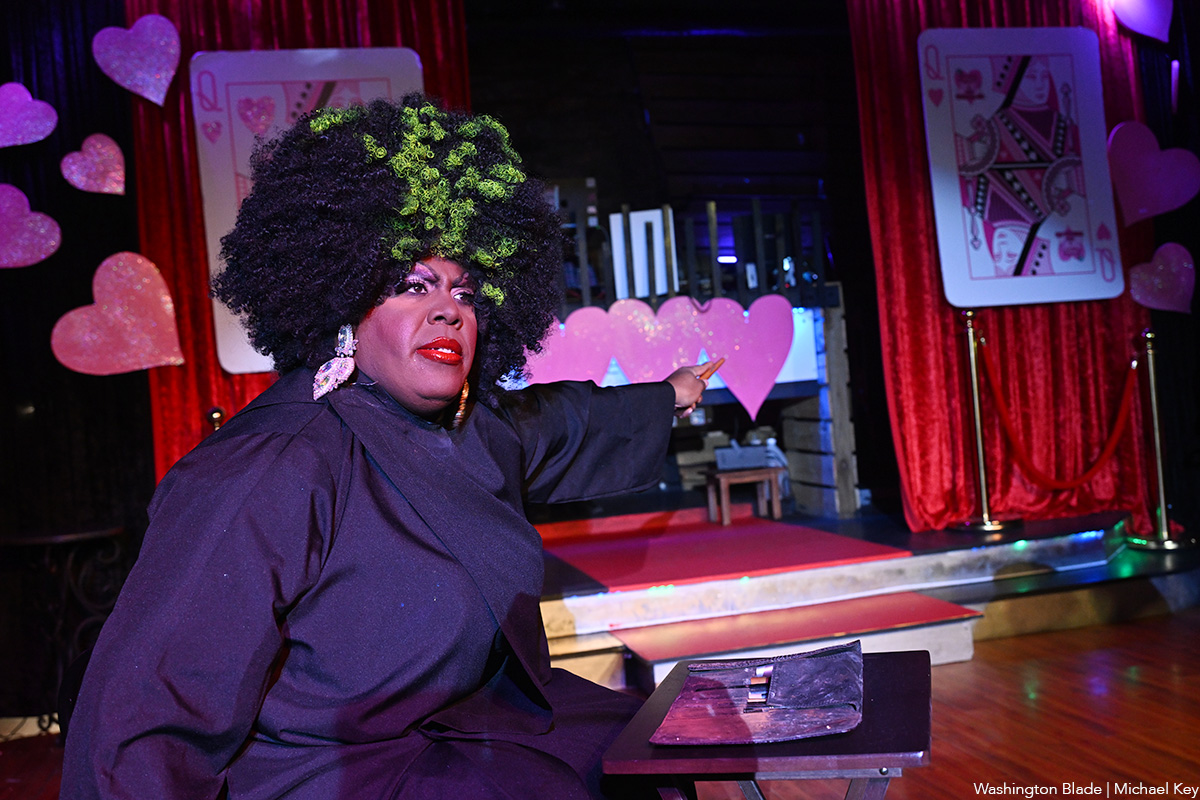

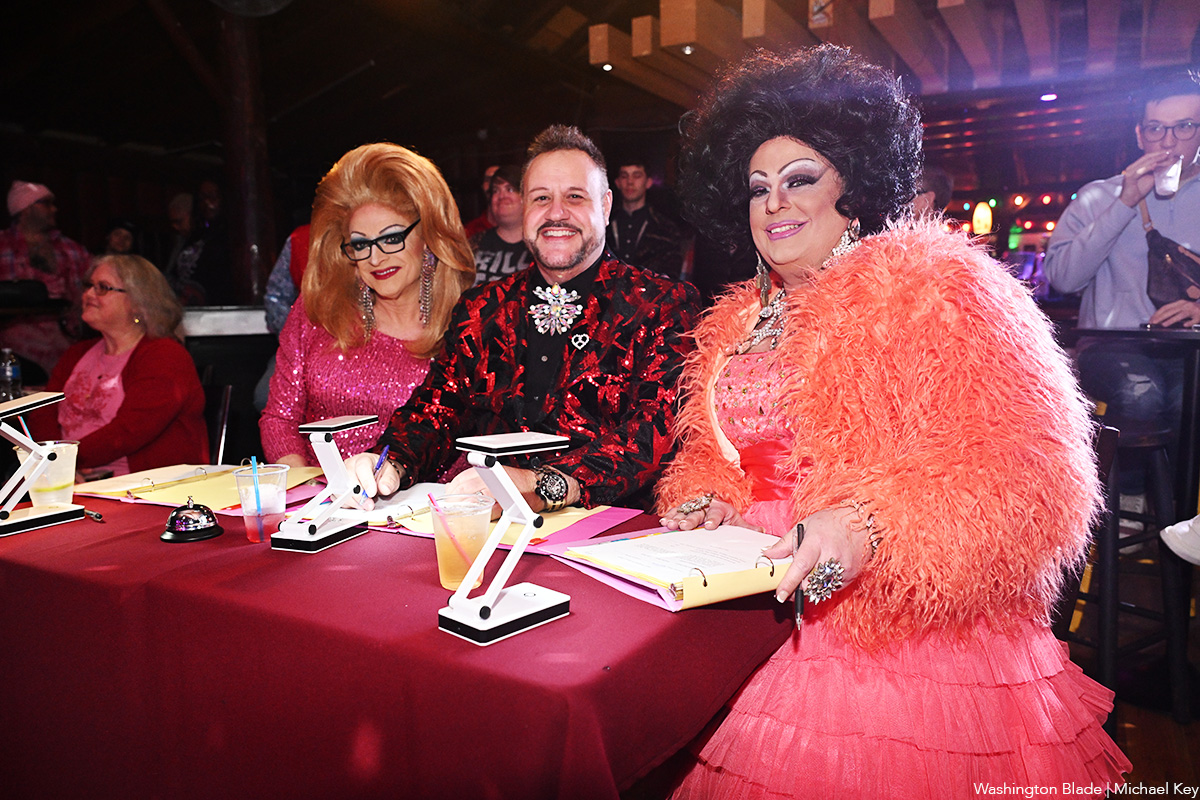
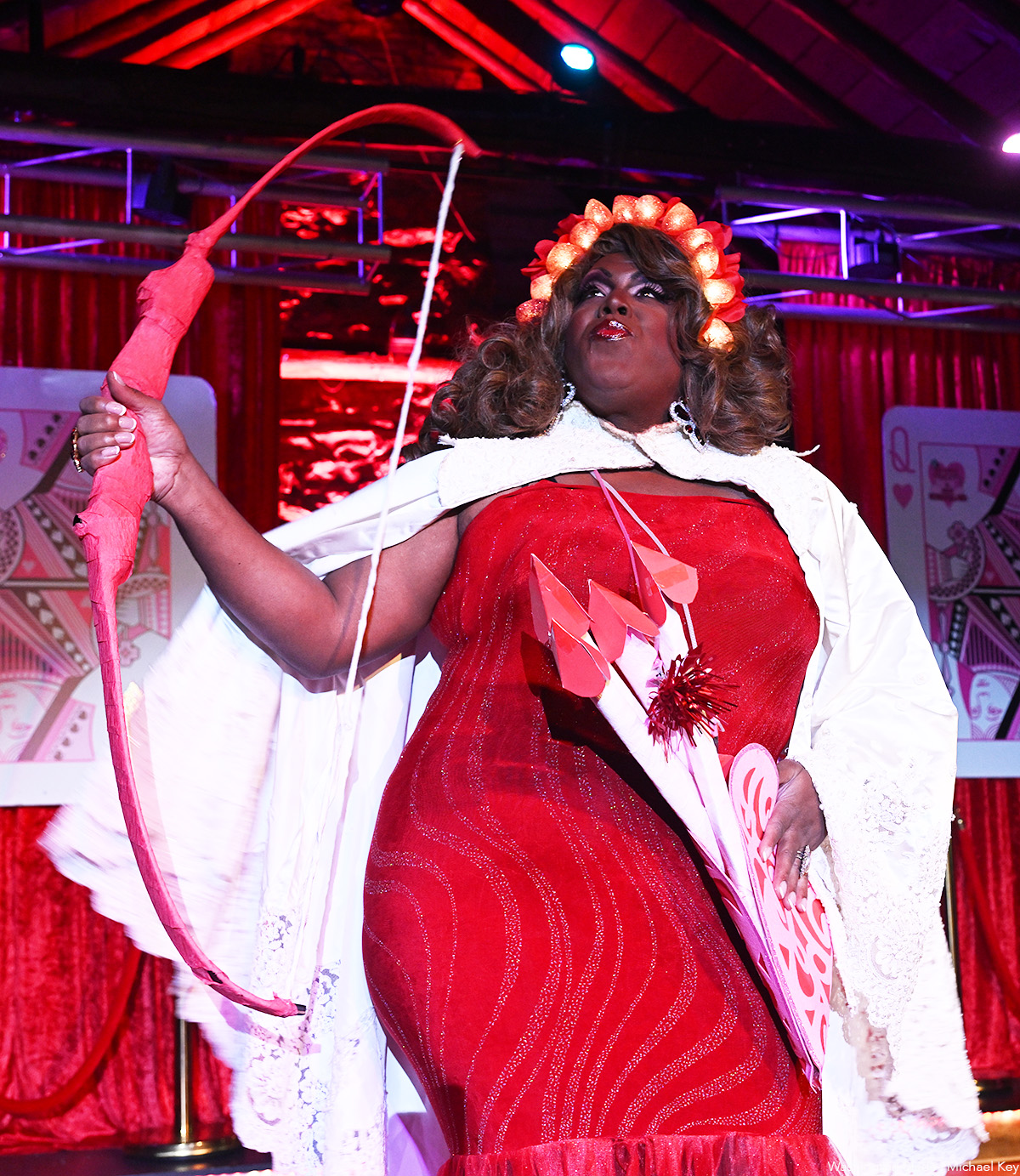
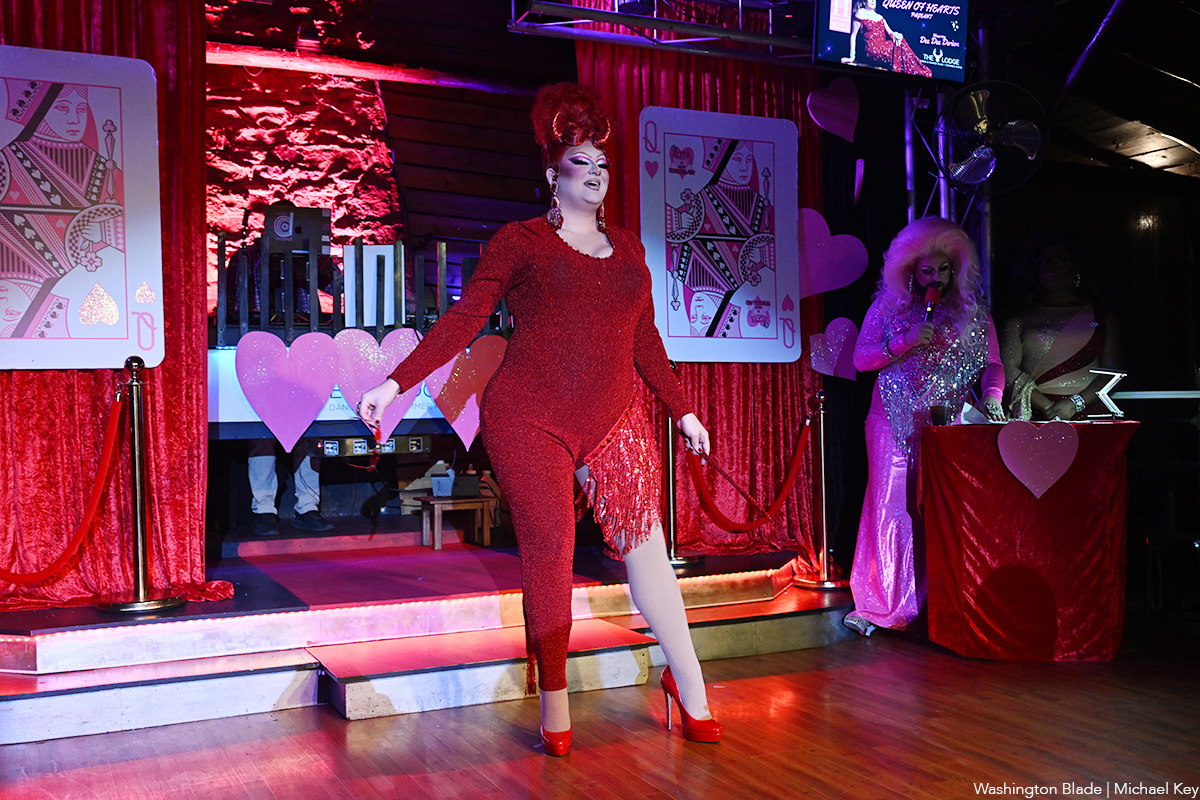
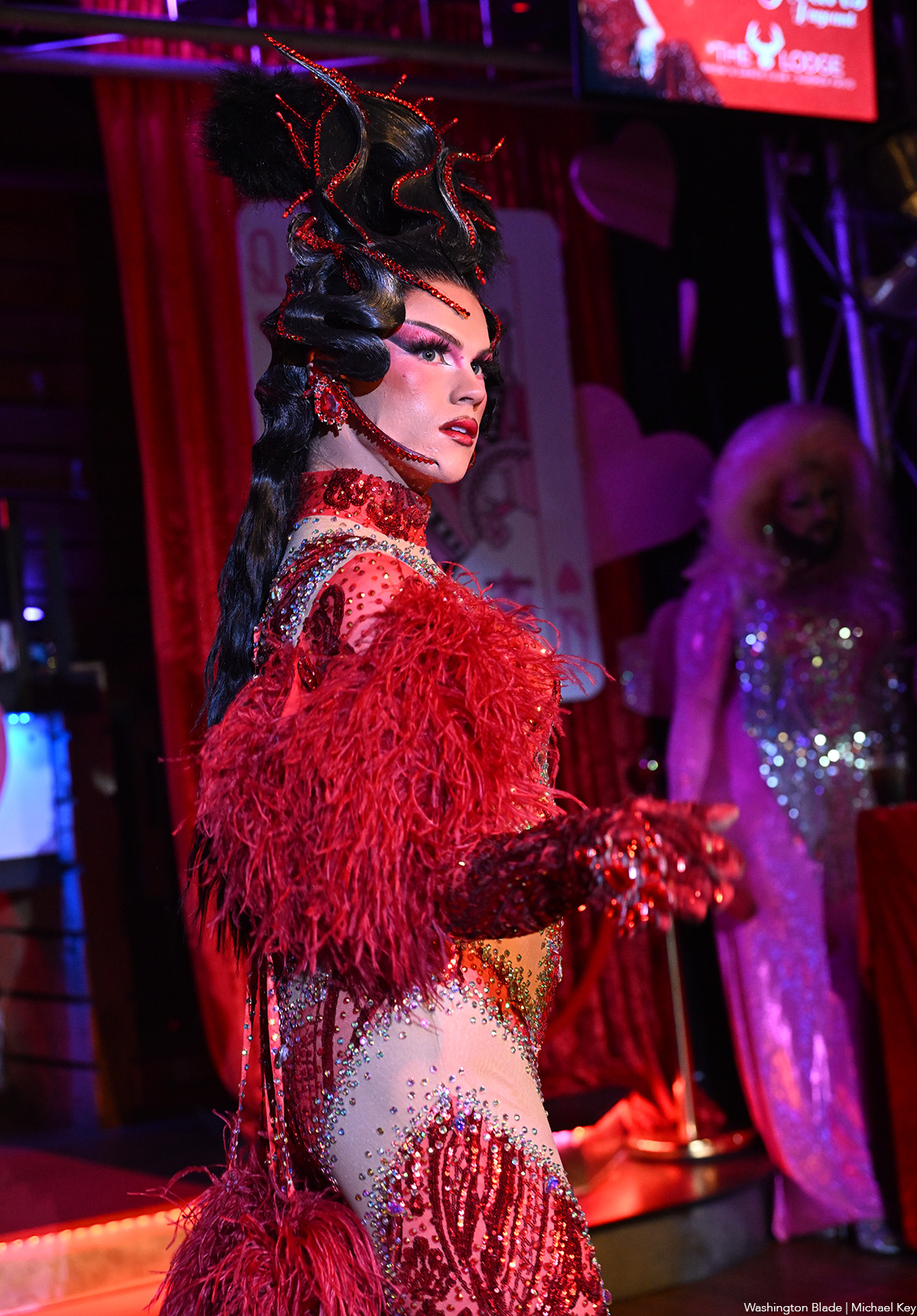

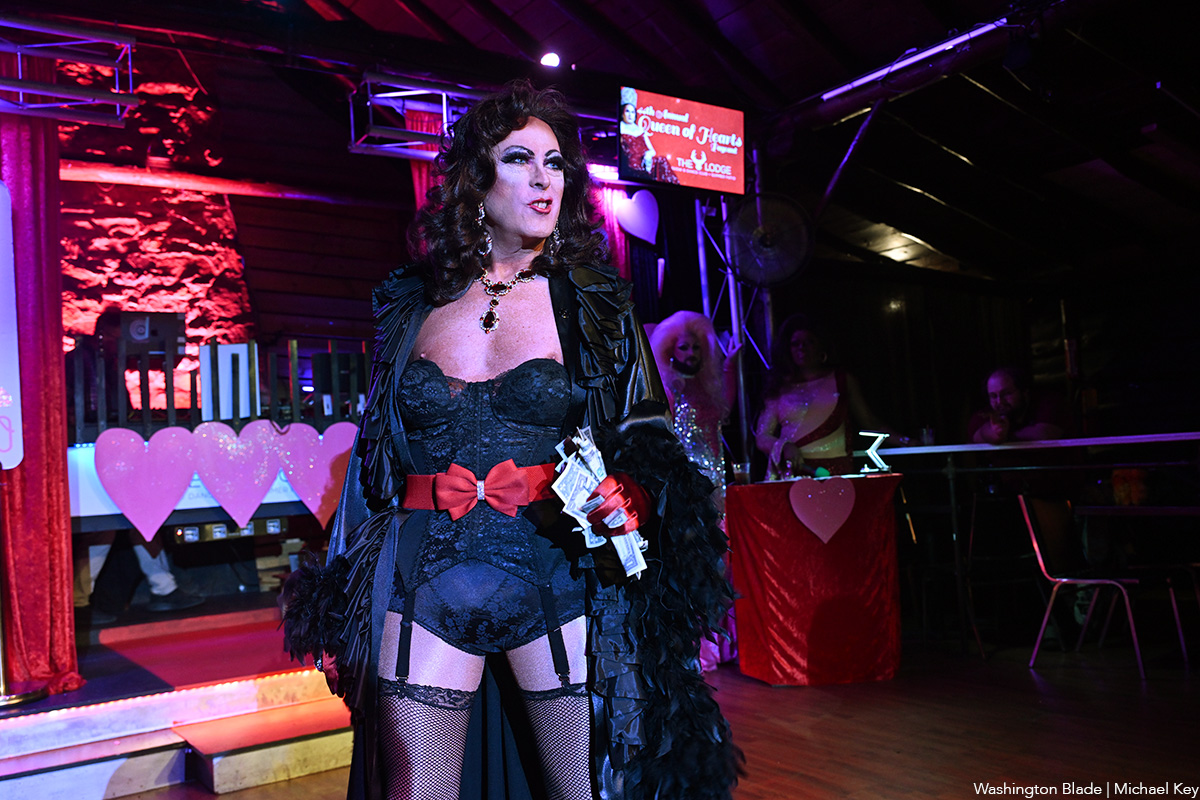
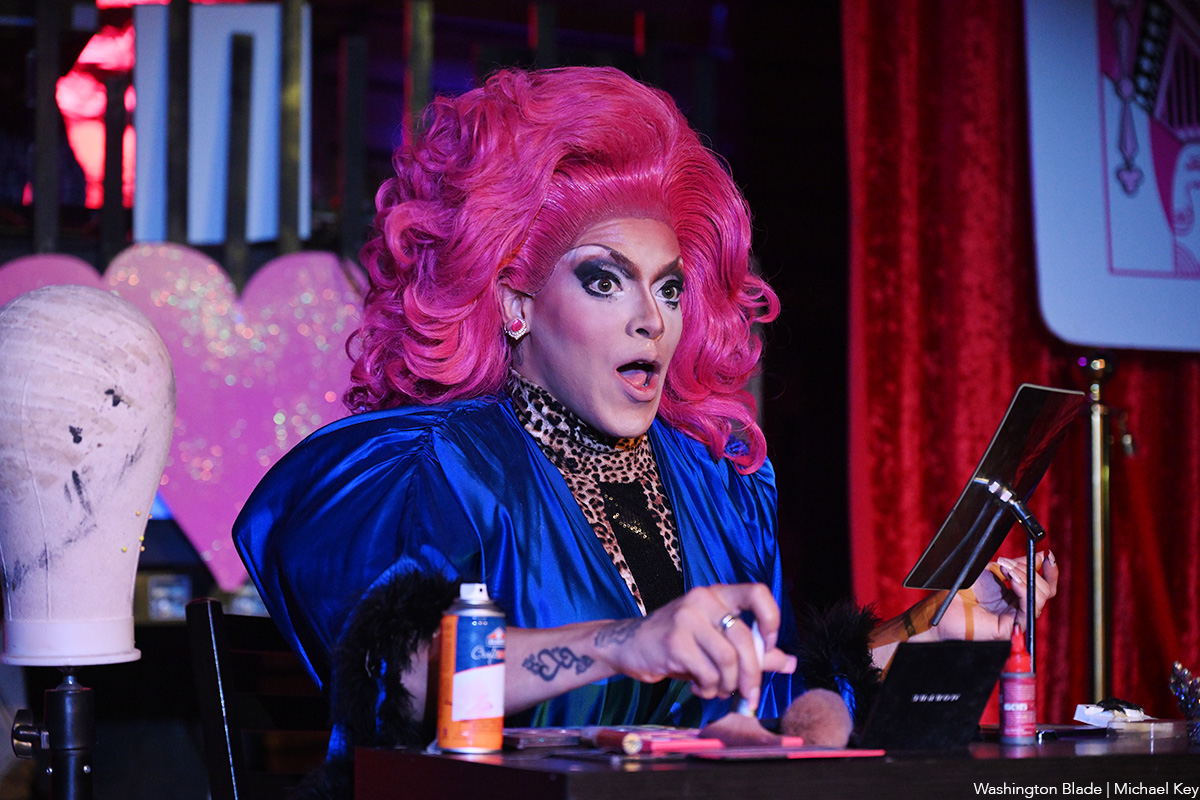
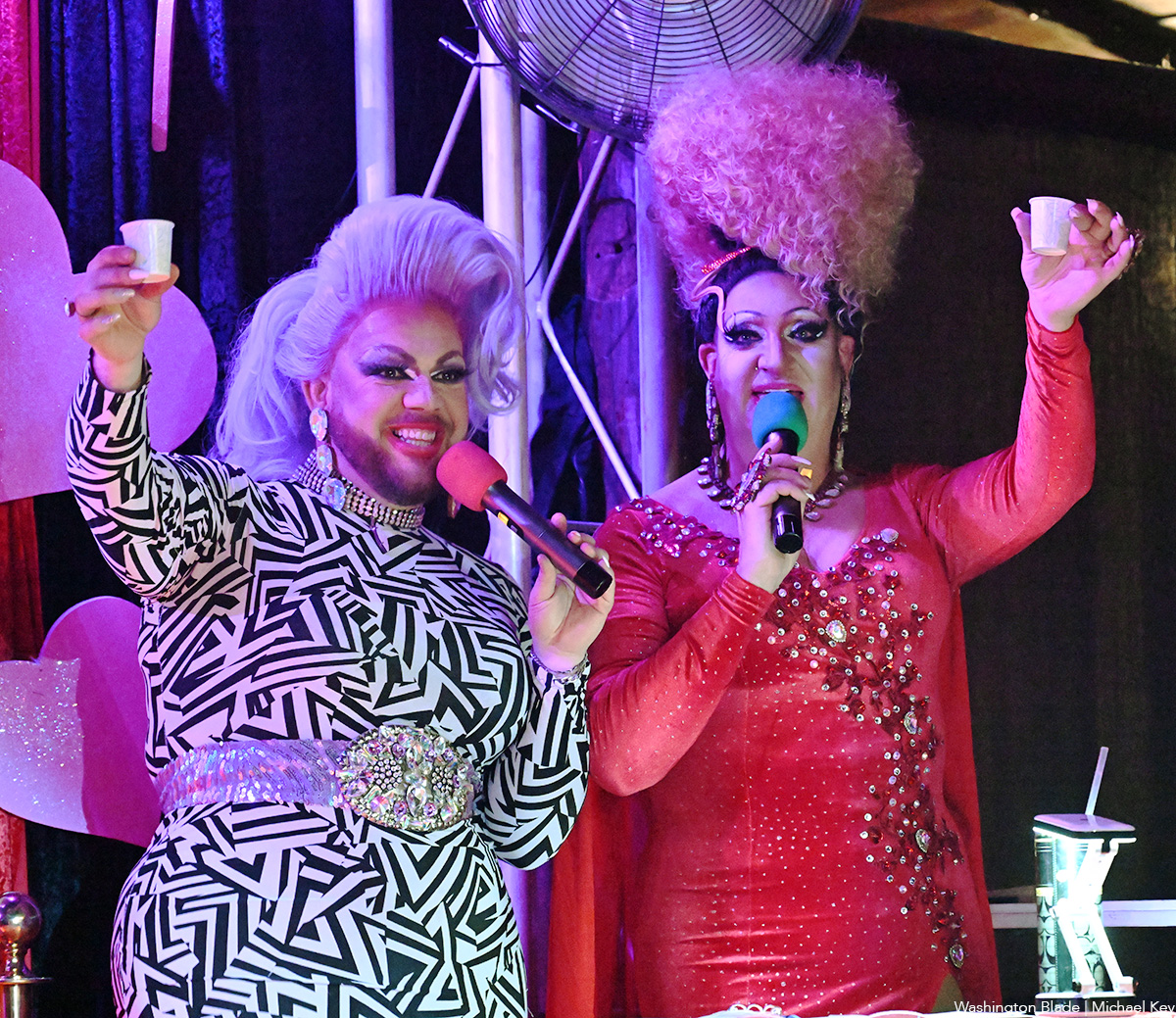
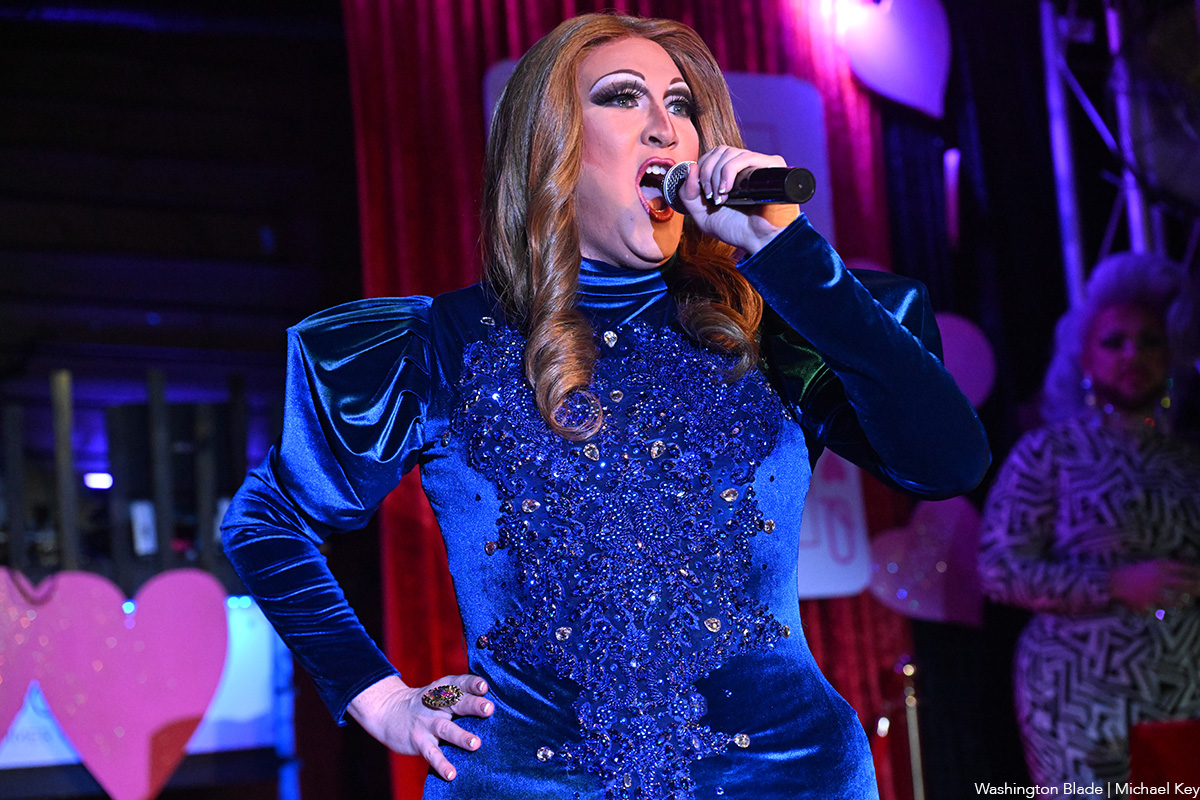
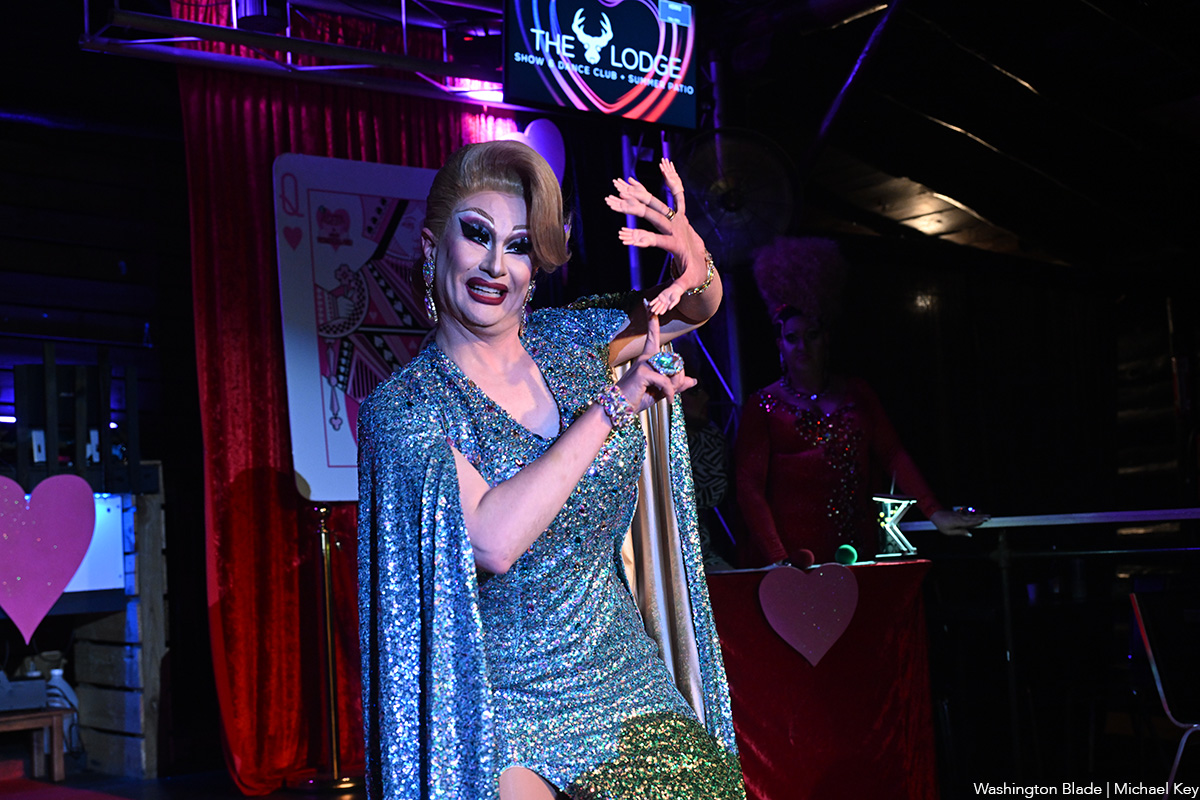
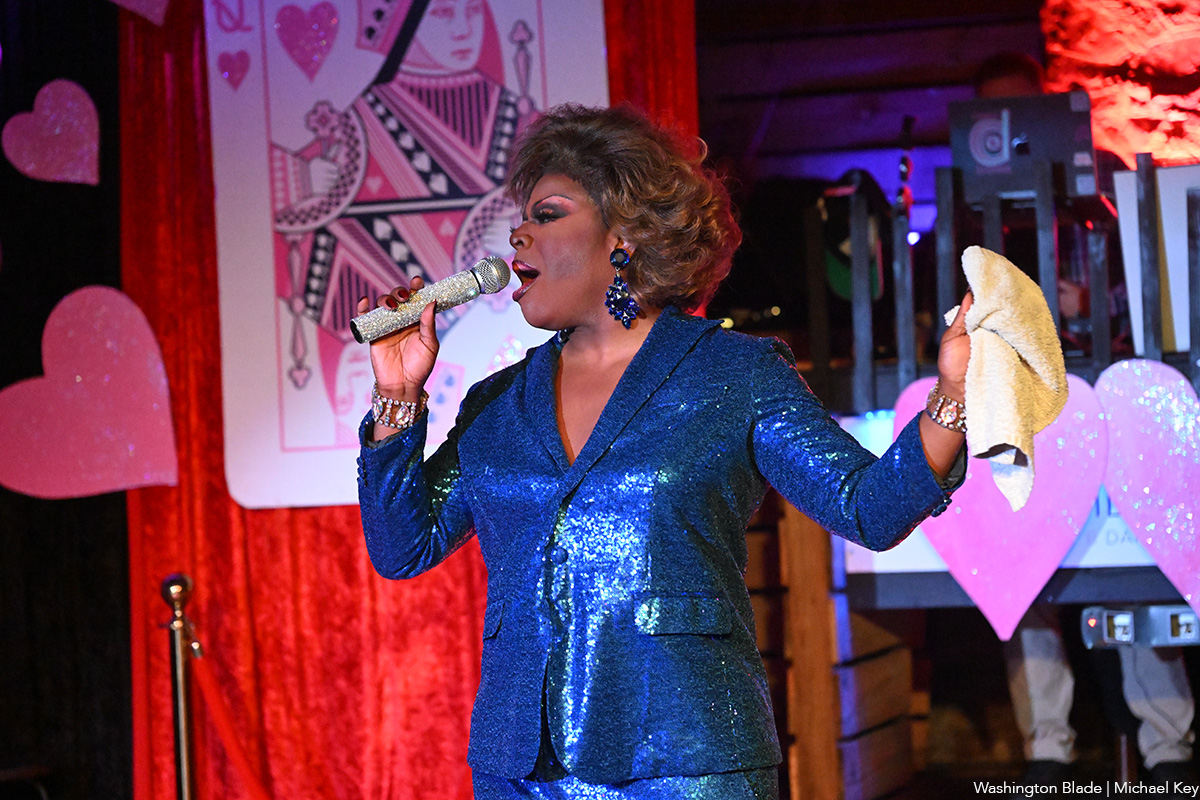

View on Threads
Books
New book profiles LGBTQ Ukrainians, documents war experiences
Tuesday marks four years since Russia attacked Ukraine

Journalist J. Lester Feder’s new book profiles LGBTQ Ukrainians and their experiences during Russia’s war against their country.
Feder for “The Queer Face of War: Portraits and Stories from Ukraine” interviewed and photographed LGBTQ Ukrainians in Kyiv, the country’s capital, and in other cities. They include Olena Hloba, the co-founder of Tergo, a support group for parents and friends of LGBTQ Ukrainians, who fled her home in the Kyiv suburb of Bucha shortly after Russia launched its war on Feb. 24, 2022.
Russian soldiers killed civilians as they withdrew from Bucha. Videos and photographs that emerged from the Kyiv suburb showed dead bodies with their hands tied behind their back and other signs of torture.

Olena Shevchenko, chair of Insight, a Ukrainian LGBTQ rights group, wrote the book’s forward.

The book also profiles Viktor Pylypenko, a gay man who the Ukrainian military assigned to the 72nd Mechanized Black Cossack Brigade after the war began. Feder writes Pylypenko’s unit “was deployed to some of the fiercest and most important battles of the war.”
“The brigade was pivotal to beating Russian forces back from Kyiv in their initial attempt to take the capital, helping them liberate territory near Kharkiv and defending the front lines in Donbas,” wrote Feder.
Pylypenko spent two years fighting “on Ukraine’s most dangerous battlefields, serving primarily as a medic.”
“At times he felt he was living in a horror movie, watching tank shells tear his fellow soldiers apart before his eyes,” wrote Feder. “He held many men as they took their final breaths. Of the roughly one hundred who entered the unit with him, only six remained when he was discharged in 2024. He didn’t leave by choice: he went home to take care of his father, who had suffered a stroke.”
Feder notes one of Pylypenko’s former commanders attacked him online when he came out. Pylypenko said another commander defended him.
Feder also profiled Diana and Oleksii Polukhin, two residents of Kherson, a port city in southern Ukraine that is near the mouth of the Dnieper River.
Ukrainian forces regained control of Kherson in November 2022, nine months after Russia occupied it.
Diana, a cigarette vender, and Polukhin told Feder that Russian forces demanded they disclose the names of other LGBTQ Ukrainians in Kherson. Russian forces also tortured Diana and Polukhin while in their custody.
Polukhim is the first LGBTQ victim of Russian persecution to report their case to Ukrainian prosecutors.

Feder, who is of Ukrainian descent, first visited Ukraine in 2013 when he wrote for BuzzFeed.
He was Outright International’s Senior Fellow for Emergency Research from 2021-2023. Feder last traveled to Ukraine in December 2024.
Feder spoke about his book at Politics and Prose at the Wharf in Southwest D.C. on Feb. 6. The Washington Blade spoke with Feder on Feb. 20.
Feder told the Blade he began to work on the book when he was at Outright International and working with humanitarian groups on how to better serve LGBTQ Ukrainians. Feder said military service requirements, a lack of access to hormone therapy and documents that accurately reflect a person’s gender identity and LGBTQ-friendly shelters are among the myriad challenges that LGBTQ Ukrainians have faced since the war began.
“All of these were components of a queer experience of war that was not well documented, and we had never seen in one place, especially with photos,” he told the Blade. “I felt really called to do that, not only because of what was happening in Ukraine, but also as a way to bring to the surface issues that we’d had seen in Iraq and Syria and Afghanistan.”

Feder also spoke with the Blade about the war’s geopolitical implications.
Russian President Vladimir Putin in 2013 signed a law that bans the “promotion of homosexuality” to minors.
The 2014 Winter Olympics took place in Sochi, a Russian resort city on the Black Sea. Russia annexed Crimea from Ukraine a few weeks after the games ended.
Russia’s anti-LGBTQ crackdown has continued over the last decade.
The Russian Supreme Court in 2023 ruled the “international LGBT movement” is an extremist organization and banned it. The Russian Justice Ministry last month designated ILGA World, a global LGBTQ and intersex rights group, as an “undesirable” organization.
Ukraine, meanwhile, has sought to align itself with Europe.
Ukrainian President Volodymyr Zelenskyy after a 2021 meeting with then-President Joe Biden at the White House said his country would continue to fight discrimination based on sexual orientation and gender identity. (Zelenskyy’s relationship with the U.S. has grown more tense since the Trump-Vance administration took office.) Zelenskyy in 2022 publicly backed civil partnerships for same-sex couples.
Then-Ukrainian Ambassador to the U.S. Oksana Markarova in 2023 applauded Kyiv Pride and other LGBTQ and intersex rights groups in her country when she spoke at a photo exhibit at Ukraine House in D.C. that highlighted LGBTQ and intersex soldiers. Then-Kyiv Pride Executive Director Lenny Emson, who Feder profiles in his book, was among those who attended the event.
“Thank you for everything you do in Kyiv, and thank you for everything that you do in order to fight the discrimination that still is somewhere in Ukraine,” said Markarova. “Not everything is perfect yet, but you know, I think we are moving in the right direction. And we together will not only fight the external enemy, but also will see equality.”
Feder in response to the Blade’s question about why he decided to write his book said he “didn’t feel” the “significance of Russia’s war against Ukraine” for LGBTQ people around the world “was fully understood.”
“This was an opportunity to tell that big story,” he said.
“The crackdown on LGBT rights inside Russia was essentially a laboratory for a strategy of attacking democratic values by attacking queer rights and it was one as Ukraine was getting closet to Europe back in 2013, 2014,” he added. “It was a strategy they were using as part of their foreign policy, and it was one they were using not only in Ukraine over the past decade, but around the world.”
Feder said Republicans are using “that same strategy to attack queer people, to attack democracy itself.”
“I felt like it was important that Americans understand that history,” he said.

More than a dozen LGBTQ athletes won medals at the Milan Cortina Winter Olympics that ended on Sunday.
Cayla Barnes, Hilary Knight, and Alex Carpenter are LGBTQ members of the U.S. women’s hockey team that won a gold medal after they defeated Canada in overtime. Knight the day before the Feb. 19 match proposed to her girlfriend, Brittany Bowe, an Olympic speed skater.
French ice dancer Guillaume Cizeron, who is gay, and his partner Laurence Fournier Beaudry won gold. American alpine skier Breezy Johnson, who is bisexual, won gold in the women’s downhill. Amber Glenn, who identifies as bisexual and pansexual, was part of the American figure skating team that won gold in the team event.
Swiss freestyle skier Mathilde Gremaud, who is in a relationship with Vali Höll, an Austrian mountain biker, won gold in women’s freeski slopestyle.
Bruce Mouat, who is the captain of the British curling team that won a silver medal, is gay. Six members of the Canadian women’s hockey team — Emily Clark, Erin Ambrose, Emerance Maschmeyer, Brianne Jenner, Laura Stacey, and Marie-Philip Poulin — that won silver are LGBTQ.
Swedish freestyle skier Sandra Naeslund, who is a lesbian, won a bronze medal in ski cross.
Belgian speed skater Tineke den Dulk, who is bisexual, was part of her country’s mixed 2000-meter relay that won bronze. Canadian ice dancer Paul Poirier, who is gay, and his partner, Piper Gilles, won bronze.
Laura Zimmermann, who is queer, is a member of the Swiss women’s hockey team that won bronze when they defeated Sweden.
Outsports.com notes all of the LGBTQ Olympians who competed at the games and who medaled.


















